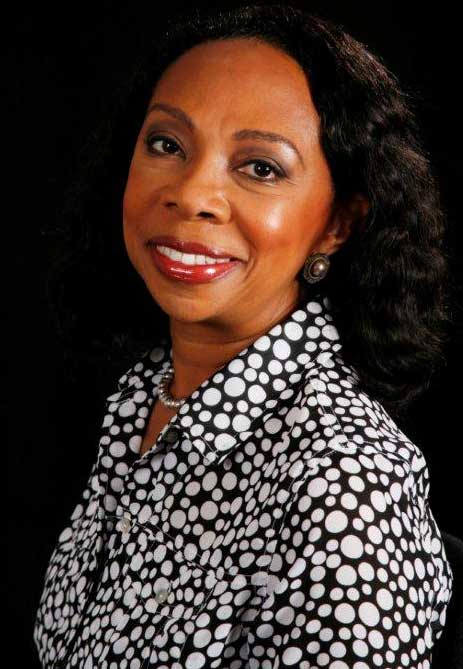Joy Cunningham
Joy Cunningham has a passion for the legal profession. Graduating from John Marshall Law School in 1982, she has practiced law in Chicago for over 30 years. Over the course of her legal career, the native New Yorker served as associate general counsel, Loyola University of Chicago/Loyola University Health System; a litigator with French, Rogers, Kezelis & Kominiarek; Assistant Illinois Attorney General; judicial clerk to Illinois Appellate Justice Glenn Johnson; judge, Circuit Court of Cook County; and senior vice president, general counsel and corporate secretary, Northwestern Memorial System.
When discussing her current role, Judge Cunningham says being an appellate judge is “an intellectually challenging job. But I’ve practiced law, in one form or another, for many years and never had a job I didn’t like. I love getting up every day and coming to work.”
Early in her career, some challenges she faced were racial issues. “When I worked for Justice Glenn Johnson – [the second] African-American to serve on the Illinois Appellate Court – he said the Chicago Bar Association (CBA) had an ‘unwritten rule’ when he was younger that blacks and Jews weren’t welcome,” she recalls. “When he was able to join, he wanted to make changes from within the organization. So, he required all his law clerks to join the CBA.”
Years later, Judge Cunningham was elected president of the CBA. Being the first African-American woman to lead the organization, from 2004-05, she felt a great sense of responsibility to continue to be an advocate for diversity in the organization.
 Today, the judge notes, “CBA activities are a great way to meet diverse groups of lawyers with similar interests. Chicago’s a great networking city. I love my hometown of New York, but it’s too big. If you’re serious about your profession, whatever it may be, you can establish a great network of professional colleagues that will help you grow in this city.”
Today, the judge notes, “CBA activities are a great way to meet diverse groups of lawyers with similar interests. Chicago’s a great networking city. I love my hometown of New York, but it’s too big. If you’re serious about your profession, whatever it may be, you can establish a great network of professional colleagues that will help you grow in this city.”
At times Judge Cunningham still tackles race and gender issues. “They’re a part of the fabric of our society,” she observes. “But they’re usually subtle and I don’t let them get to me. For example, when a panel of three judges hears cases in the Appellate Court and I’m the presiding judge, I sit in the center with two junior judges on either side of me. I once asked a question to a male lawyer arguing before us. And even though I asked the questions, he often looked at my male colleagues when answering. I’m sure he wasn’t even conscious of it, but I noticed.”
Fast-forward to 2012’s election when Judge Cunningham faced the challenge of running for Supreme Court. “That was the most difficult thing I’d ever done,” admits the judge, who believes ‘power brokers’ influenced voters in exchange for financial benefit. “I believe the results of the election could’ve been different had it been allowed to play out in a natural fashion,” she affirms. “But the interference of power brokers determined the outcome, and judges shouldn’t be subjected to the kind of politics that were so rampant in the Supreme Court race. It wasn’t a fair election, and I say that without hesitation.”
Despite the loss, the judge looks ahead with a positive attitude. “When something doesn’t work, I know it will pass,” she states. “On the other side of a rough wind is a nice, sunny day and smooth sailing.” And with her 10-year Appellate Court term finished in three years, she isn’t worried about ‘the next step.’
“I take it one day at a time. If I choose to be retained for another 10 years, my name will go before the voters. I haven’t decided if I’ll run for retention in 2016, but if I do, I hope the voters will retain me.”
Judge Cunningham also feels it’s essential to give back to the community. “As a minority woman who’s had some degree of success in my chosen career, it’s important for me to act as a role model,” she says, “I’ve been involved in the Mikva Challenge, working with children in inner city schools to help them develop skills in debate and public speaking. They’re key life skills that inner city kids aren’t usually exposed to, and I feel a responsibility to offer my help.”
In addition to managing a full-time career and volunteer work, Judge Cunningham somehow finds the time to participate actively in her son’s school activities. “I’m the room parent for my 8-year-old’s third grade class. You’d be amazed how much work that is, but it’s important because he’s at a new school this year. It’s been a great way for me to get to know the school, teacher and parents. It’s almost like a second full-time job between planning parties, collecting money for field trips, et cetera. I even compiled the class directory, which was a real chore because some of the families didn’t have emails. I found myself doing this project at 1-2AM every day for a few weeks. However, I’m a high-energy person and do what I have to do to get things done at home and at the office.”
Judge Cunningham’s passion for her profession clearly shows, and she advises young lawyers to take a hard look at their career paths before embarking on a lifelong journey in law. “If you don’t have a passion for law, sit back and give yourself time to think about how you can use the education you spent so much time, effort and money obtaining to do something different,” she insists. “A law degree is very versatile and you have to be willing to seek a profession you truly love.”

Leave a Reply